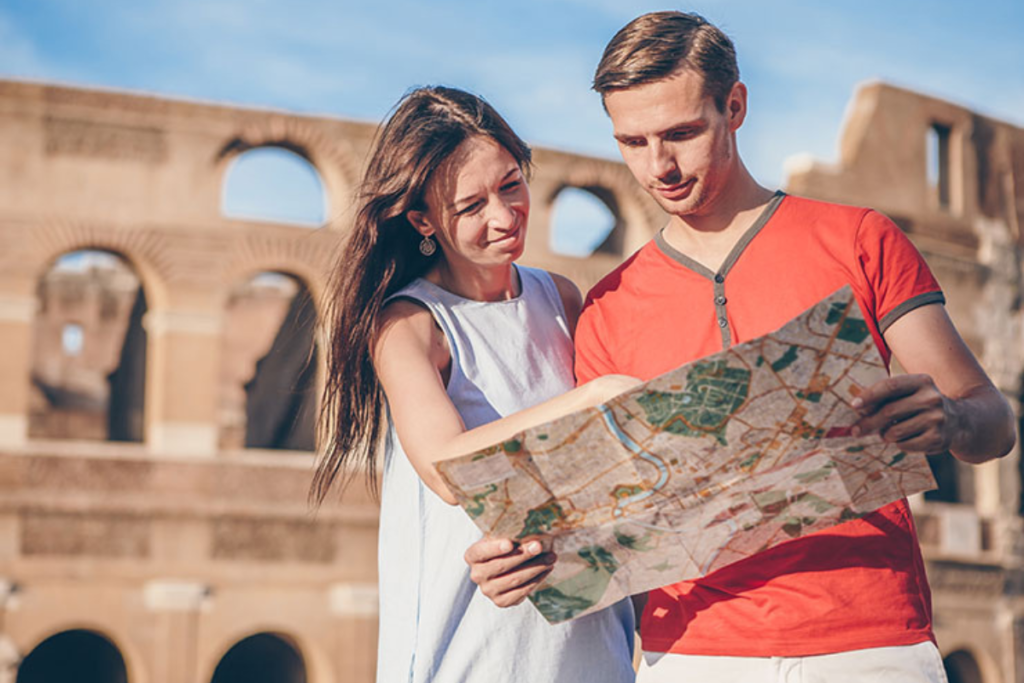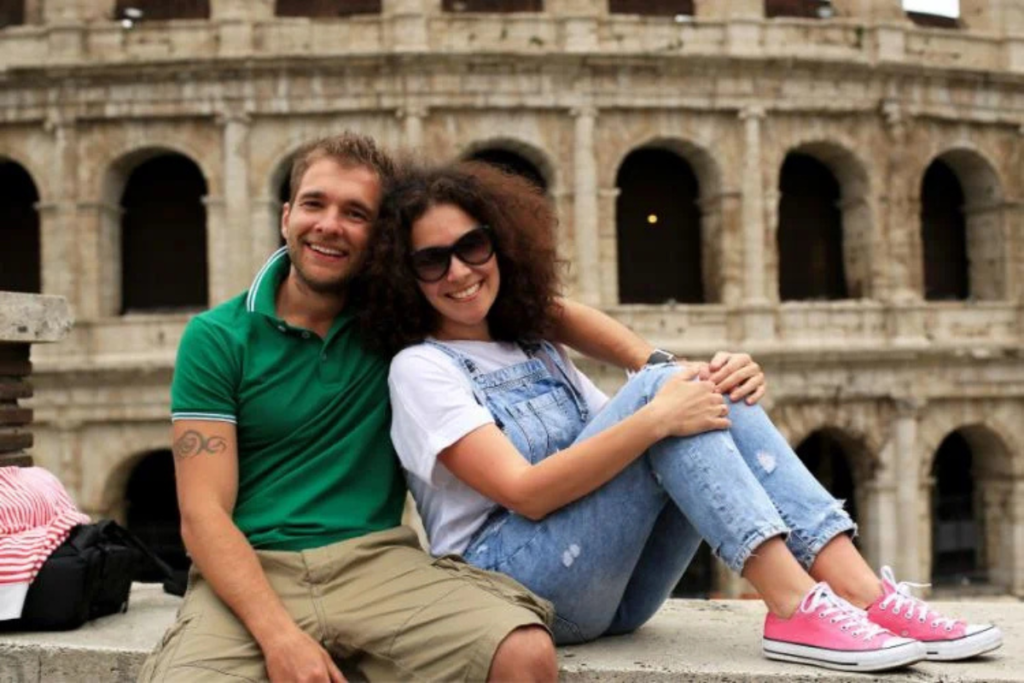Traveling to a foreign country can be an exciting and enriching experience, but it can also be daunting if you don’t know the local language. Italy is a popular tourist destination, known for its beautiful cities, delicious cuisine, and rich culture. Learning some basic Italian phrases before your trip can make your experience much more enjoyable and help you navigate through the country with ease.
In this guide, we will cover essential Italian phrases that every traveler should know. From greetings and introductions to ordering food and asking for directions, these phrases will come in handy during your trip to Italy. So pack your bags, put on your best Italian accent, and get ready to impress the locals with these basic Italian phrases.
Why Learn Basic Italian Phrases?
Learning some basic Italian phrases can greatly enhance your travel experience in Italy. Not only will it make communicating with locals easier, but it also shows respect and appreciation for the country’s culture and language. Basic Italian phrases for travelers can also help you avoid common misunderstandings and miscommunications.
Moreover, learning even a few phrases can make a positive impact on your interactions with locals. Italians are known for being warm and friendly, and making an effort to speak their language can open up more opportunities for authentic cultural experiences.
Not to mention, knowing basic Italian phrases can also be useful in emergency situations or when seeking help from locals. It’s always better to be prepared, especially when traveling to a foreign country.
Basic Italian Greetings and Introductions

The first step to any interaction is a greeting. Here are some basic Italian phrases for greetings and introductions:
- “Ciao” – Hello/Goodbye (informal)
- “Buongiorno” – Good morning/afternoon (formal)
- “Buonasera” – Good evening (formal)
- “Come ti chiami?” – What’s your name? (informal)
- “Mi chiamo [name]” – My name is [name] (formal/informal)
- “Piacere di conoscerti” – Nice to meet you (informal)
- “Piacere di conoscerla” – Nice to meet you (formal)
Remember to use “tu” for informal interactions and “lei” for formal ones. Also, don’t be surprised if you’re greeted with a kiss on the cheek – this is a common form of greeting among friends and family in Italy.
Basic Italian Phrases for Ordering Food
No trip to Italy is complete without indulging in the delicious food and wine. Here are some essential Italian phrases for ordering food at restaurants:
- “Posso avere il menù, per favore?” – Can I have the menu, please?
- “Vorrei ordinare [dish]” – I would like to order [dish]
- “Per me la stessa cosa” – The same for me
- “Mi scusi, posso avere un po’ di pane/vino/acqua?” – Excuse me, can I have some bread/wine/water?
- “Il conto, per favore” – The bill, please
- “Grazie” – Thank you
It’s also helpful to know some basic food and drink vocabulary, such as “pasta,” “pizza,” “vino” (wine), and “caffè” (coffee).
Basic Italian Phrases for Asking for Directions

Getting lost in a new city is part of the adventure, but it’s always good to know how to ask for directions. Here are some basic Italian phrases for asking for directions:
- “Scusi, dove si trova [place]?” – Excuse me, where can I find [place]?
- “A destra” – To the right
- “A sinistra” – To the left
- “Dritto/Avanti” – Straight ahead
- “Grazie mille” – Thank you very much
- “Mi può aiutare?” – Can you help me?
It’s also useful to learn some basic location vocabulary, such as “piazza” (square), “strada” (street), and “stazione” (train station).
Basic Italian Phrases for Emergency Situations
In case of emergencies, it’s crucial to know how to ask for help. Here are some basic Italian phrases for emergency situations:
- “Aiuto!” – Help!
- “Chiamate la polizia/ambulanza!” – Call the police/ambulance!
- “Ho bisogno di un dottore” – I need a doctor
- “Mi hanno rubato la borsa” – My purse has been stolen
- “Dov’è l’ospedale più vicino?” – Where is the nearest hospital?
Remember to also have emergency numbers saved on your phone, such as 112 for general emergencies and 113 for police.
Basic Italian Phrases for Fun With Locals
Interacting with locals in Italy can be one of the most rewarding experiences during your trip. Here are some fun Italian phrases to try out for laughs and cultural immersion:
- “Mi scusi, parla inglese?” – Excuse me, do you speak English?
- “Mi piace questa città” – I like this city
- “Posso fare una foto con voi?” – Can I take a picture with you?
- “Un caffè per favore” – A coffee please (pronounced as “un caffé”)
- “Dov’è il miglior gelato in città?” – Where is the best gelato in town?
Remember to always be polite and respectful when interacting with locals. Don’t be afraid to use your basic Italian phrases and have fun immersing yourself in the culture.
Italian Phrases for Transportation

Getting around in Italy can be an adventure in itself. Here are some basic Italian phrases for transportation:
- “Quanto costa il biglietto?” – How much is the ticket?
- “Vorrei andare a [place]” – I would like to go to [place]
- “A che ora parte il treno/autobus per [place]?” – What time does the train/bus leave for [place]?
- “Mi scusi, dov’è la fermata del bus/treno?” – Excuse me, where is the bus/train stop?
- “Dov’è la stazione dei taxi?” – Where is the taxi station?
- “La metro è in direzione [direction]?” – Is the subway going towards [direction]?
Remember to always validate your ticket before boarding public transportation, and be prepared for delays and strikes, especially during peak tourist season.
Does Everyone in Italy Speak Italian?
While Italian is the official and most widely spoken language in Italy, not everyone in the country speaks it as their first language.
Various regional dialects and languages, such as Neapolitan, Sicilian, Sardinian, and Venetian, are still actively used, particularly by older generations. In areas with distinct cultural identities, like South Tyrol, German is commonly spoken, and in the Aosta Valley, French is prevalent.
Additionally, English is increasingly taught in schools and used by younger Italians, especially in tourist areas, making communication easier for travelers.
Despite the diversity of languages, knowing basic Italian can still be highly beneficial and appreciated when engaging with locals across the country, providing a deeper connection and understanding of Italy’s rich cultural heritage.
What Are Some Key Italian Customs And Etiquette?

Italians are known for their warmth and hospitality, and understanding some key cultural customs and etiquette can help you navigate social interactions in the country. Here are a few to keep in mind:
- Greetings: As mentioned earlier, greetings often involve a kiss on the cheek among friends and family. Handshakes are also commonly used in more formal settings.
- Punctuality: In general, Italians have a more relaxed attitude towards time, so it’s not uncommon for meetings or events to start late. However, it’s still polite to arrive on time for appointments or reservations.
- Gestures: Italians are known for their use of hand gestures when communicating. Some common ones to know include the “ok” sign (where the index finger and thumb form a circle), which can be considered offensive in some cultures, and the gesture where the index finger is rotated near one’s temple, meaning “crazy.”
- Dining etiquette: It’s considered polite to wait for everyone at the table to be served before starting to eat. Also, don’t be afraid to ask for recommendations or share dishes with others – it’s all part of the communal dining experience.
- Tipping: Tipping is not required in Italy as a service charge is often included in the bill. However, it’s still appreciated to leave a small tip for exceptional service.
- Dress code: While there is no strict dress code in Italy, it’s generally recommended to dress elegantly and conservatively, especially when visiting churches or other religious sites. Avoid wearing beachwear or revealing clothing in public places.
By following these basic customs and etiquette, you’ll blend in with the locals and have a more enjoyable experience during your trip to Italy.
Mistakes To Avoid When Speaking Italian
Learning a new language can be intimidating, and making mistakes is part of the learning process. However, there are a few common mistakes that you can avoid when speaking Italian:
- Mispronunciation: Be mindful of your pronunciation, as it can significantly impact how well you’re understood. Practice with native speakers or use online resources to perfect your pronunciation.
- Literal translations: Some phrases in English may not have direct translations in Italian, so be cautious when using online translation tools. Instead, try to understand the context and learn commonly used phrases for specific situations.
- Using “tu” instead of “lei”: In formal settings, it’s more polite to use the formal “lei” instead of the informal “tu” when addressing someone. This shows respect and can help avoid any unintentional rudeness.
- Not practicing enough: Like with any skill, practice makes perfect. Don’t be afraid to make mistakes or ask for corrections from native speakers – it’s all part of the learning process.
By being aware of these common mistakes, you can communicate more effectively and confidently in Italian. Remember to have fun and enjoy the journey of learning a new language!
FAQs
What are some common Italian phrases for travelers visiting Italy?
When visiting Italy, knowing common Italian phrases can greatly enhance your experience. Some key Italian phrases include greetings like “Buongiorno” (Good morning) and “Grazie” (Thank you). These basic Italian words help in daily interactions and are essential Italian travel phrases to learn.
How can I learn key Italian phrases for travel?
To learn Italian effectively, focus on key phrases that are most useful during travel. Start with basic Italian words such as “Per favore” (Please) and “Mi scusi” (Excuse me). These Italian phrases for travel will assist you in navigating various situations and interactions in Italy.
What is an essential Italian phrase to use in restaurants?
In restaurants, a useful Italian phrase is “Che cosa ci consiglia?” meaning “What do you recommend?” This is one of the key Italian phrases that can enhance your dining experience by allowing you to interact with the staff and discover local specialties.
Why is it important to know basic Italian words when visiting Italy?
Knowing basic Italian words is important when visiting Italy as they facilitate communication and enhance cultural understanding. Even learning a few key phrases like “Dov’è il bagno?” (Where is the bathroom?) can make traveling smoother and more enjoyable, showing respect for the local language and culture.
Conclusion
Learning a few basic Italian phrases can greatly enhance your travels in Italy. From ordering coffee to navigating transportation, knowing the local language can open doors to new experiences and connections with locals.
It also shows respect for the country’s culture and customs. Whether you’re a beginner or just looking to brush up on your skills, don’t be afraid to practice and make mistakes – it’s all part of the learning process! So, say “Buon viaggio” (safe travels) and have fun immersing yourself in the beautiful language of Italy.




